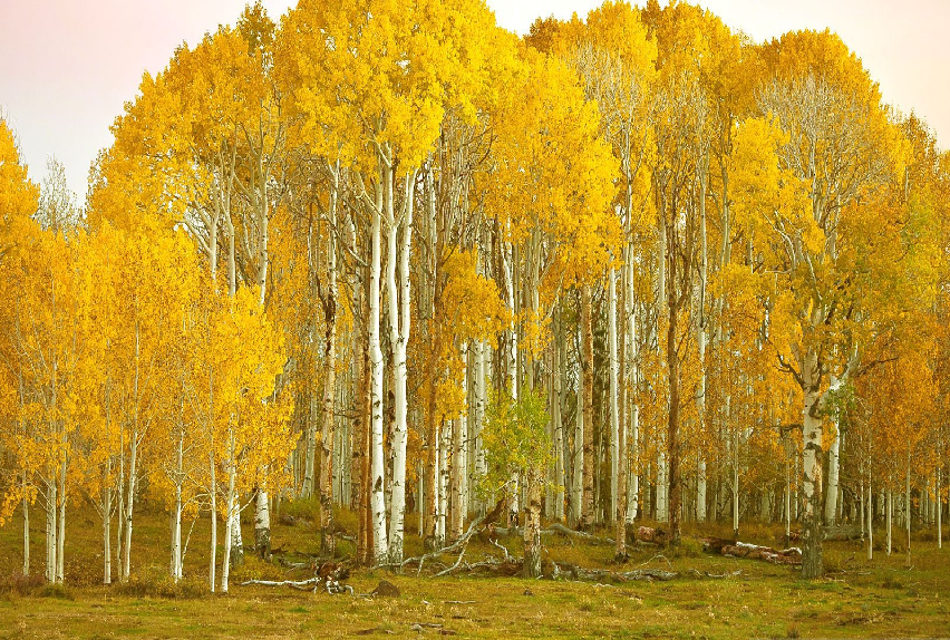Emily Strauss – Three Poems
Winter’s Arrival
To the west under the dark
clouds lie the mountains.
The sky purples the ridge line
between the summit and the storm,
the gap a lid poised over the black
silhouettes. The oncoming rain
pushes against the valley
and that bright strip of glowing
evening with Venus still clear.
Dusk signals the faded promises
of the last persimmons, yellow
birches before the rain arrives
to slash the branches, spilling
fruit into the mud, crowding
the rivers until they scour
the dry beds, the stars hidden,
the mountains a single mass
in their blacknesss. The ground
is soaked, the sky’s lid drops
onto the orchards, vines, twisted
roots, all the people running
on wet feet as they eye
the low sky, water in their faces.
Violet empties from the horizon,
the gap between sky and land
closes to those not quick enough
to escape before winter arrives.
Doing Nothing, Deeply
staring at fog, the ocean
invisible below the cliff
dropped without
end, all sound buried
the white air swirling
hawks and crows
waiting on their high branches peering down
find nothing, put their heads
under wings, sleep again
staring deeply at the fog
doing nothing, I lie
under down coverlets
head under wings
Winter Moon
cold full moon
shines on the snow—
crisp banks glow
white-blue
the bright light hiding
most of the stars
only Mars shows
above the horizon
where the outlines of spruce
stand like fingered combs
against the deep indigo
sky and late twilight
still glows faintly behind
the birch.
we walk through
the vague dusk blindly
feeling our way
past drifts piled deep
cold white canyons
reflect our lamps.
Author’s Statement on Beauty
Beauty in poetry is a long subject, full of history. Poetry has always been about singing, music, rhythm, and words that match to please the listener. Though poetry may tell aching stories, as in Homer: “Sing, O muse, of the rage of Achilles, son of Peleus, that brought countless ills upon the Achaeans.” (The Iliad), the language should be beautiful, even in translation.
Often, poets wrote about beautiful topics, using metaphors, as in Shakespeare:
“These violent delights have violent ends
And in their triumph die, like fire and powder
Which, as they kiss, consume”
(Romeo and Juliet)
Even modern Confessional poets wrote with care for their wordings, as in W. D. Snodgrass:
Though trees turn bare and girls turn wives,
We shall afford our costly seasons;
There is a gentleness survives
That will outspeak and has its reasons.
(from “April Inventory”)
Poetry is not prose precisely for the reason of its careful consideration and use of language, of words, metaphors, of sounds and rhythms. Some will argue that post-Modern poetry has aimed for effect more than beauty, for the grit of Bukowski, the constructions of Ginsberg, or the twisted prose thoughts of Silliman:
…The whole neighborhood is empty in the daytime. Children form lines at the end of each recess. Eminent domain. Rotating chair. The history of Poland in 90 seconds. Flaming pintos. There is no such place as the economy, the self. That bird demonstrates the sky. Our home, we were told, had been broken, but who were these people we lived with?
(from “Albany”)
Beauty in poetry comes from words and their exquisite placement and juxtaposition. Beautiful poetry may uplift in love or draw the face of death, but it does so always in a way that feeds the spirit of any reader who is open to its effects. Hallmark makes its money on easily absorbed bits of soft poetry; we read poems at weddings and funerals for their ability to give significance to important life events. Even the least learned reader can hear something special in a certain line of poetry. We depend on poetry’s existence even if we don’t often encounter it, just as we should depend on the existence of natural wilderness even if we are never able to visit it in person. Its mere presence suffices to make us aware that life and the world are not all mundane, and can be viewed in a special lens when we need an extra push of the soul.
Poetic Arts
the metaphor of myth,
penultimate truth because
the ultimate cannot be put
into words beyond the wheel
of becoming. Myth pitches us
beyond what can be known
but not told. Poetry is the rest,
expressing experience that
can’t be measured, language
which must be penetrated
the precise choice of words
having implications
and suggestions beyond
themselves, measure of dreams
beyond description. Words are
only qualifications and limitations.

Emily Strauss has an M.A. in English, but is self-taught in poetry, which she has written since college. Her poems appear in a wide variety of online venues and in anthologies, in the U.S. and abroad. The natural world of the American West is generally her framework; she also considers the narratives of people and places around her. She is a semi-retired teacher living in California.

